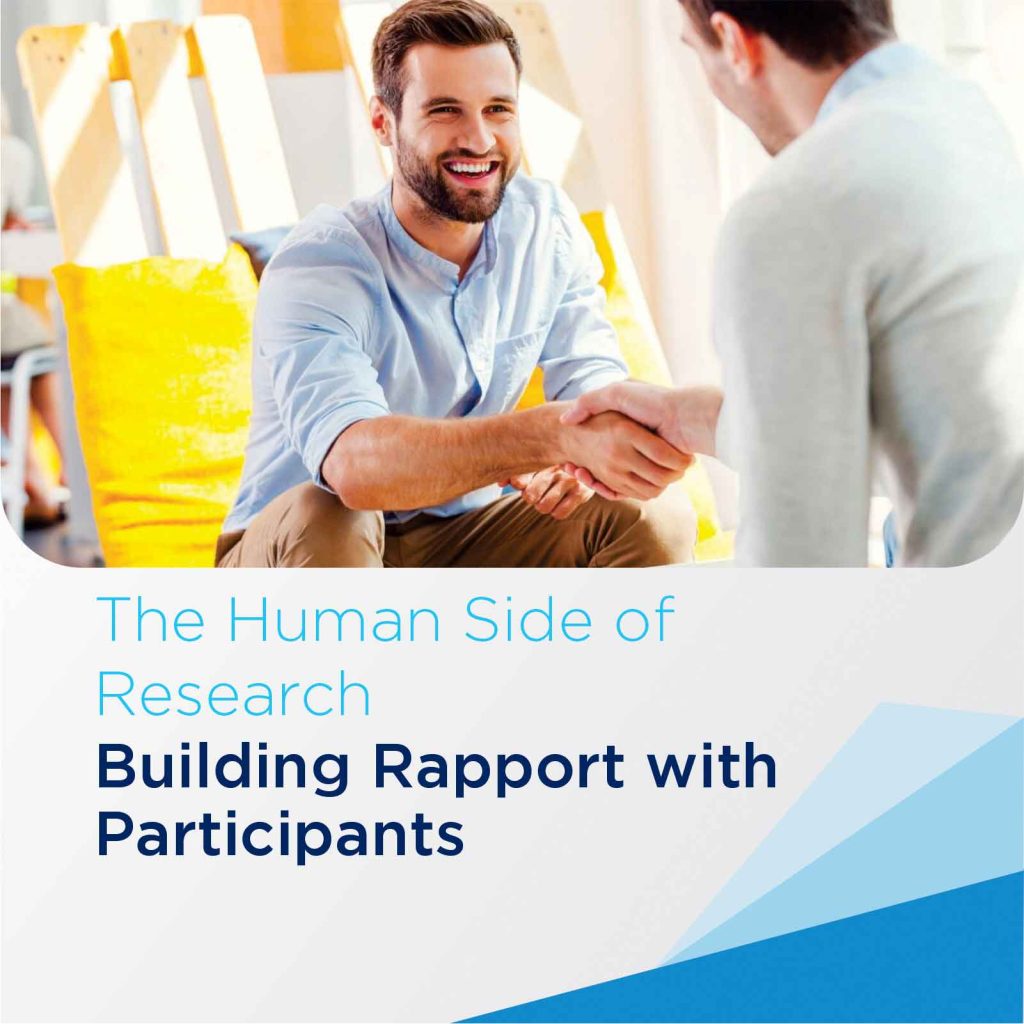Clinical trials are the cornerstone of medical progress, paving the way for new treatments and improved patient care. But behind the data and statistics lies a crucial element often overlooked: the human connection. Building rapport with participants is the foundation of successful research, ensuring their comfort, trust, and willingness to contribute to scientific advancement.
Speak the Language of People, Not Papers:
Medical jargon might sound impressive, but to a participant, it can be intimidating and confusing. Ditch the technical terms and explain things in plain language. Imagine explaining a complex dish to a friend; use simple analogies, everyday examples, and visuals to make the process clear and relatable.
Active Listening is Your Superpower:
Give participants your full attention. Nod, make eye contact, and ask clarifying questions to show you’re genuinely listening. This not only clarifies doubts but also builds trust and shows you care about their individual experience. Remember, they are not just subjects; they are valued partners in the research journey.
Empathy is the Bridge, Not Just a Buzzword:
Put yourself in their shoes. Imagine their anxieties about the unknown, the discomfort of procedures, and the hope for a better future. Acknowledge their feelings, validate their concerns, and offer reassurance. A simple “I understand how you feel” can go a long way in building trust and creating a safe space for open communication.
Cultural Sensitivity is Key:
Be mindful of diverse backgrounds, beliefs, and communication styles. Adjust your approach to respect cultural norms and language preferences. Use interpreters when necessary and avoid making assumptions about participants’ understanding or expectations. Remember, inclusivity is essential for ethical and successful research.
Small Gestures, Big Impact:
A simple smile, a warm handshake, or a genuine thank you can make a world of difference. Remember, participants are volunteering their time and trust to contribute to scientific progress. Show your appreciation for their invaluable contribution and make them feel like respected partners in the research journey.
Open Communication is the Golden Rule:
Be transparent about the research process, potential risks and benefits, and expectations. Encourage questions, address concerns promptly, and provide regular updates on the progress of the trial. Open communication fosters trust and ensures participants feel informed and empowered to make informed decisions about their participation.
Building rapport is not a one-time event; it’s an ongoing process. By incorporating these tips into your interactions, you can create a positive and supportive environment for participants, leading to a more successful and rewarding research experience for everyone involved. Remember, the human side of research is just as important as the scientific data. By building trust and understanding, you can unlock the true potential of clinical trials and pave the way for a healthier future for all.








